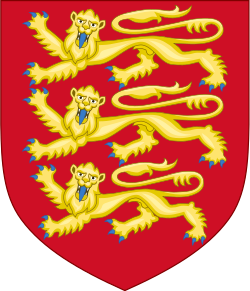Background
David Cameron's proposed English Cabinet of Mayors
UK prime minister David Cameron proposed in 2012 that England's directly elected mayors sit within an "English Cabinet of Mayors", giving them the opportunity to share ideas and represent their regions at English national level. This proposed cabinet of mayors would have been chaired by the prime minister and meet at least twice a year. [5] [6] However, no action was taken to form such a body.
Gordon Brown's proposed Council of England
Plans for a "Council of England" featured in a 2022 Labour Party report on constitutional reform by Gordon Brown titled A New Britain: Renewing our Democracy and Rebuilding our Economy. [7] The proposed council would be chaired by the prime minister and would include leaders of combined authorities, the mayor of London, representatives of local government and other stakeholders in England. Earlier, Labour's manifesto for the 2017 general election included a commitment to establish the post of a "Minister for England" within the Department of Communities and Local Government. [8] [9]
Dunlop Review's proposed English Regions Forum
The 2021 The Dunlop Review into UK Government Union Capability suggested that consideration could be given to establishing an "English Regions Forum" to "feed views in from sub-national governments in England to UK Government ministers". [10] [11] [12]
A 2022 report by the Electoral Reform Society suggested the establishment of an "English Leaders' Forum" to bring together UK ministers with combined authority mayors, single local authority mayors and council leaders. It also suggested the creation of an "England Office" to act as a representative for English local government to the UK government and serve to coordinate between central and local government on English devolved matters. [13]
Onward's proposed National Mayors Association
Conservative leaning think tank Onward proposed the formation of a National Mayors Association and creation of various Joint Delivery Taskforces involving the UK central government, metro mayors and local authorities in a report titled Give Back Control published in 2022. [14] [15]
Institute for Government's proposed English Devolution Council
In a report titled Devolving English Government published in April 2023, to counter what they described as over-centralisation and a democratic deficit in England, the Institute for Government and the University of Cambridge's Bennett Institute for Public Policy proposed the formation of an "English Devolution Council", and the establishment of an "Office for England" led by a "Secretary of State for England". Under the proposals the English Devolution Council would include the mayor of London and existing combined authority mayors. An interim mechanism would be put in place for the participation of local leaders in areas of England without a mayoral combined authority. The role of the council would be to debate issues related to local and regional governance in England, to call ministers and experts to provide evidence and to advise the UK central Government on English affairs. The Existing Ministry for Housing, Communities and Local Government would be split into a Department for Housing and Communities and an Office for England, which would take on responsibility for oversight of devolved and local governance in England. The Secretary of State for England would chair a cabinet committee for England including other secretaries of state from departments whose remits mainly apply to England only. [16] [17] [18]
Establishment
Following Labour's victory in the 2024 United Kingdom general election, the new prime minister Keir Starmer informally met England's combined authority mayors and the mayor of London on 9 July. [19] [20] The first formal meeting of the Mayoral Council, chaired by the Secretary of State for Housing, Communities and Local Government, Angela Rayner, took place on 10 October 2024 in Newcastle-upon-Tyne and the council is expected to meet on a quarterly basis. The Ministry of Housing, Communities and Local Government said it set up the Mayoral Council to "strengthen the relationships between central government and the mayors" ahead of publishing a white paper on devolution. [1] [21] [22] The first meeting of the Council of the Nations and Regions, which also included England's combined authority mayors and the mayor of London, took place the following day.
Unlike the proposed "Council of England", the Mayoral Council does not include local government representatives in areas without a mayoral combined authority, or other stakeholders. However, at the 2024 Labour Party Conference, Labour reiterated its commitment to English devolution, saying that all areas of England "should eventually be covered by mayoral devolution", which would mean that the Mayoral Council would eventually evolve into an all-England forum. [23]
The post of Minister of State for Local Government and English Devolution, held by Jim McMahon, was established within the Ministry of Housing, Communities and Local Government in July 2024.
Mayors Network (M10 Group)
Combined authority mayors and the Mayor of London also meet informally on a monthly basis as the Mayors Network (M10 Group) allowing them to consult each other, coordinate their actions, and gain access to UK government ministers. [24] [25] [26] This network has been chaired by Tracy Barbin since May 2022 and previously by Dan Jarvis. [27] [28]





